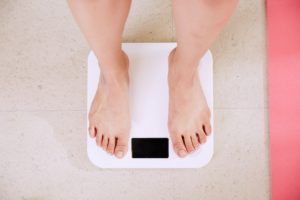Can poor blood sugar regulation impact your mood, cause you to want to eat more and cause weight gain? Absolutely!
Let me explain a little about the brain first up.
Consider your brain has a high brain region (the part that can make smart decisions) and a primitive brain section (the reactive limbic part).
Sensory input goes to your high brain when no adrenaline is in the brain. You’ll likely use reason and logic to guide your behaviour and make decisions.
But, if there is adrenaline coming in, sensory input goes to the primitive area, and here you go into fight or flight or even react to past behaviours. There’s a sense of urgency and panic in this region. Your digestion system also slows down. It’s great if you’re running from a lion, but not for minor day-to-day activities.
What can trigger a surge of adrenaline in the body? A few things, but what I’m focusing on is food, low blood sugar levels, and not eating, which can cause a rise in adrenaline.
So you can see from what I’ve explained that your mood is going to be impacted since you begin to operate in the primitive brain mode. Your digestion has slowed, which negatively ultimately can impact your weight.
Hypoglycemia, i.e., low blood sugar, can trigger several symptoms including:
– irritability
– shaking
– headaches
– heart palpitations
– sweating
– moodiness
– nervousness
– cold/clammy skin
What causes hypoglycemia?
Hypoglycemia is where the sugar (glucose) level in your blood drops too low.
The leading cause is that your body releases too much insulin after eating (reactive hypoglycaemia or postprandial hypoglycaemia) or not eating at all. Insulin’s main job is to move glucose from the bloodstream into the body’s cells to make energy.
If you have a high-carb meal, e.g. fruit loops cereal, the glucose will drop 1.5 – 2 hours later. This is because insulin is putting the glucose away. Adrenaline will be realised as the body senses glucose has fallen rapidly, and the brain needs glucose to function well. (The adrenaline stimulates the liver to get more fuel to the brain, but that’s another topic).
What’s the solution?
For some people, it’s eating every 2 hours. But is there a better way?
Ideally, you want to eat more protein. Eating more protein keeps the brain happy and satisfied for 3-4 hours.
I encourage you to read food labels when picking out snacks. Snacks are often the culprit to sugar crashes.
Here’s an example of how to pick better snacks: Let’s pretend I have a muesli bar.
It contains 20 grams of carbs, 4 grams of fibre and 4 grams of protein.
Subtract the fibre from the carbs to get 16 grams. This 16 grams is the number we are interested in.
Now look at the ratio of the revised carbs number to the protein.
It’s 16:4 or 4:1.
Under 3:1 is good.
4:1 is okay.
5:1 is a dessert.
Anything more significant than that is trouble.
So this bar is okay. But there would be better eating options if that were your daily snack choice.
Do you suffer from sugar crashes or constantly battle to ‘be good’ and not binge on the sweet stuff?
Book in a 1 on 1 consultation and receive dietary, lifestyle and supplement recommendations to combat your health concerns.
Alternatively, check out the signature program A COURSE IN NORMAL EATING. Here you’ll learn the foundation principles of nutrition and break the never ending circuit of binge eating. Find food freedom today and live a better future.




